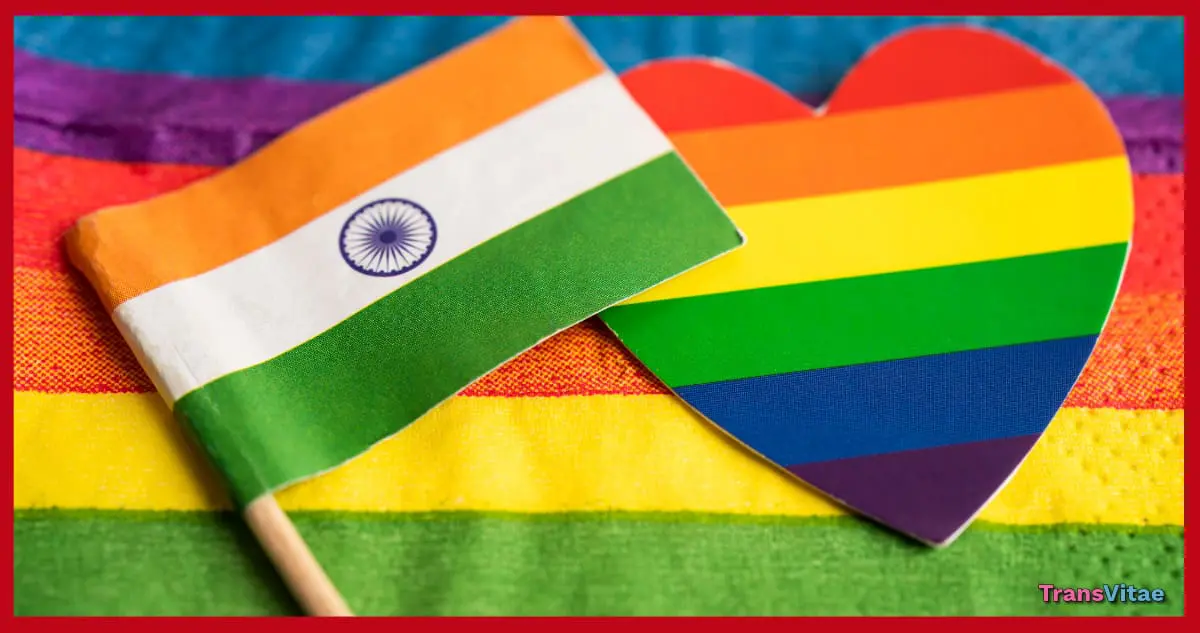India’s first dedicated transgender healthcare facility, originally established as Mitr Clinic in Hyderabad, Telangana, faced a significant setback when a funding freeze by the U.S. Agency for International Development (USAID) forced its closure in January 2025. This abrupt halt disrupted vital services for thousands of transgender individuals, a community already grappling with systemic stigma and healthcare disparities. However, six months later, on May 2, 2025, the clinic triumphantly reopened under a new name—Sabrang Clinic—thanks to robust financial backing from Indian corporate giants, notably Tata Trusts. This revival marks a significant milestone in ensuring stigma-free, specialized medical care for India’s estimated one million transgender individuals, a population disproportionately affected by health challenges such as HIV/AIDS. The reopening of Sabrang Clinic not only restores critical healthcare access but also underscores India’s evolving cultural and legal landscape for transgender rights, while sparking debates in the U.S. over foreign aid priorities.
Historical and Cultural Context of Transgender Communities in India
Transgender identities in India are deeply rooted in the country’s rich cultural and historical tapestry, dating back centuries. Communities such as the Hijra, Aravani, Jogta, and Jogappa have long held significant roles in Indian society, often revered in religious and cultural contexts. The Hijra, for instance, are frequently invited to bless newborns and newlyweds during ceremonies, a tradition that reflects their historical acceptance as bearers of spiritual significance in texts like the Vedas and Puranas. Similarly, the Jogappa community in South India, often referred to as “brides of the deity,” dedicate their lives to temple rituals, performing music and dance as acts of devotion. These roles highlight a historical acceptance of gender diversity, contrasting sharply with the marginalization transgender individuals face in modern India due to colonial-era stigmas and societal biases.
The British colonial period, particularly through the Criminal Tribes Act of 1871, criminalized and marginalized Hijra communities, labeling them as threats to public order. This legacy of stigmatization persisted into post-independence India, where transgender individuals faced systemic exclusion from education, employment, and healthcare. Despite these challenges, the resilience of transgender communities has been evident through their creation of supportive kinship networks, often referred to as “chosen families,” which provide emotional and social support in the absence of acceptance from biological families.
The Supreme Court’s landmark 2014 ruling in *National Legal Services Authority (NALSA) v. Union of India* was a turning point, recognizing transgender individuals as a “third gender” with equal constitutional rights under Articles 14, 15, and 21, which guarantee equality, non-discrimination, and the right to life and personal liberty. This decision mandated affirmative action in education, employment, and healthcare, paving the way for initiatives like Mitr Clinic. The 2018 *Navtej Singh Johar v. Union of India* ruling further decriminalized consensual same-sex relations, reinforcing the legal foundation for transgender rights. These judicial advancements, coupled with growing activism, have gradually shifted societal perceptions, though challenges like stigma and discrimination persist.
The Emergence of Mitr Clinic: A Revolutionary Step
Launched on January 29, 2021, in Hyderabad’s Narayanguda, Mitr Clinic—meaning “friend” in Hindi—emerged as India’s first comprehensive transgender healthcare facility. Supported by USAID and the U.S. President’s Emergency Plan for AIDS Relief (PEPFAR) through Project ACCELERATE, led by Johns Hopkins University, the clinic was a groundbreaking initiative. It provided a one-stop center offering free services, including general health consultations, HIV counseling and screening, treatment for sexually transmitted infections (STIs), mental health support, gender-affirming care, and legal and social protection assistance. What set Mitr Clinic apart was its trans-led model, with all staff—doctors, counselors, and outreach workers—being members of the transgender community, fostering a stigma-free environment where patients felt safe and understood.
Since its inception, Mitr Clinic served over 4,900 clients, with a particular focus on addressing the disproportionate HIV burden among transgender individuals. A 2019 Reuters report estimated a 3.1% HIV prevalence among India’s transgender population, equating to approximately 31,000 individuals, compared to the national adult rate of 0.26%. A 2021 UNAIDS report cited a slightly higher 3.8% prevalence, suggesting around 38,000 transgender individuals living with HIV/AIDS. Mitr Clinic’s data revealed a 6% HIV positivity rate among its patients, with 83% of those diagnosed receiving antiretroviral therapy (ART), underscoring its critical role in combating this health crisis.
The clinic’s success led to the establishment of two additional facilities in Pune and Thane, Maharashtra, in 2021, expanding its reach. By January 2025, the Hyderabad clinic alone employed seven transgender staff members and served 150–200 LGBTQIA+ individuals monthly, providing not only medical care but also a safe space for community interaction and advocacy. The clinic’s closure in January 2025, due to the USAID funding freeze, left thousands without access to these essential services, highlighting the fragility of reliance on foreign aid.
The USAID Funding Freeze and Its Global Impact
The closure of Mitr Clinic was a direct consequence of U.S. President Donald Trump’s executive order on January 20, 2025, imposing a 90-day freeze on all USAID funding to review its alignment with the “America First” policy. This decision, affecting over $40 billion in international projects, disrupted numerous programs worldwide, particularly in developing nations like India. The freeze targeted initiatives under Project ACCELERATE, which supported Mitr Clinic, leading to its abrupt shutdown on January 24, 2025. The move also affected similar programs in Nepal, Bangladesh, and Pakistan, leaving thousands of LGBTQ individuals without access to critical healthcare services addressing HIV/AIDS, mental health, and gender-based violence.
Controversy in the U.S.: Political Backlash
The USAID funding freeze sparked significant controversy in the U.S., particularly among conservative lawmakers and figures. U.S. Senator John Kennedy (R-La.) publicly criticized the allocation of taxpayer funds to Mitr Clinic, arguing in February 2025 that such initiatives were misaligned with American priorities. President Trump echoed this sentiment, labeling USAID’s support for transgender healthcare abroad as “wasteful.” White House Press Secretary Karoline Leavitt and House Speaker Mike Johnson (R-La.) further amplified these criticisms, framing the clinic’s funding as part of a broader pattern of “radical” USAID expenditures. Elon Musk, then leading the Department of Government Efficiency, added fuel to the debate, posting on X on February 28, 2025, “That’s what American tax dollars were funding,” highlighting the clinic’s role before his departure from the administration in May 2025.
These criticisms reflect a broader U.S. policy shift under the Trump-Vance administration, which has prioritized curbing federal support for gender-affirming care both domestically and internationally. The administration’s actions, including barring transgender women from women’s sports in federally funded schools and mandating that detainees be housed according to their sex assigned at birth, have raised concerns about the safety and rights of transgender individuals. Critics, such as Dr. Aqsa Shaikh, an associate professor at the Hamdard Institute of Medical Sciences in New Delhi, argue that these policies mark a regression in the U.S.’s role as a global leader in transgender rights, urging India to develop its own ecosystem for transgender healthcare.
The Rebirth of Sabrang Clinic: A New Chapter
Despite the funding crisis, the resilience of Mitr Clinic’s trans-led team and the intervention of Indian corporate philanthropy led to its reopening as Sabrang Clinic on May 2, 2025. The name “Sabrang,” meaning “all colors” in Hindi, reflects an expansive vision for inclusive healthcare that embraces diversity. Managed by the YR Gaitonde Center for AIDS Research and Education (YRGCARE), the clinic resumed operations with a commitment to restoring and expanding its services. A.K. Srikrishnan, YRGCARE’s Chief Operating Officer, expressed elation at continuing the clinic’s mission, stating, “Sexual minorities deserve respect and their right to self-expression.” He emphasized that the name change was a strategic rebranding to reinforce the clinic’s inclusive ethos, with no deeper political motive.
Corporate Support and Financial Sustainability
The revival of Sabrang Clinic was made possible by a three-year funding commitment from Tata Trusts, the philanthropic arm of India’s Tata conglomerate, announced in April 2025. Tata Trusts pledged approximately $18 per person per year, slightly less than the $23 per person provided by USAID, to sustain the clinic’s operations. This funding covers the salaries of the core medical staff, while leadership positions are jointly supported by Tata Trusts and YRGCARE. Subash Ghosh, the project lead, noted that while some roles were phased out due to financial constraints, the clinic is actively seeking additional donors to scale up its services.
During the interim period between the closure and reopening, the clinic’s team maintained patient support through virtual consultations and medication delivery, ensuring continuity of care for those reliant on HIV treatment and other services. The Hindu reported that Tata Trusts’ commitment enabled the clinic to resume full operations, serving as a lifeline for Hyderabad’s transgender community. Srikrishnan expressed ambitions to expand Sabrang Clinic’s model nationwide, stating, “If someone were to tell us, ‘Can you run it across the country?’ we would certainly love to do it.”
Influence on State Initiatives
The success of Mitr Clinic inspired the Telangana government to launch 33 trans-inclusive health facilities, known as Maithri Clinics, across the state in 2024. These clinics, modeled after Mitr’s approach, aim to provide accessible healthcare to transgender individuals. While Maithri Clinics have filled some gaps left by Mitr’s closure, Sabrang Clinic’s team chose to restart operations independently to avoid delays and maintain their established trust network. The state’s initiative reflects growing recognition of transgender healthcare needs, but challenges remain, including inadequate training for healthcare providers and persistent stigma in mainstream medical settings.
Legal Recognition of Transgender Rights in India
India’s judiciary has played a pivotal role in advancing transgender rights, with several landmark rulings shaping the legal landscape. The Andhra Pradesh High Court’s June 16, 2025, ruling, presided over by Justice Venkata Jyothirmai Pratapa, affirmed that transgender women are legally recognized as women, rejecting arguments that tie womanhood to reproductive capacity. This decision, rooted in the 2014 NALSA ruling, ensures that trans women like Pokala Sabhana can access protections under Section 498A of the Indian Penal Code, which addresses domestic cruelty, including dowry-related harassment. The ruling dismissed a case against Sabhana’s in-laws due to insufficient evidence but upheld her legal standing as a woman, setting a precedent for future cases.
The Madras High Court’s May 22, 2025, ruling further expanded the concept of family by recognizing “chosen families” within the LGBTQ community. Justices G.R. Swaminathan and V. Lakshminarayanan ordered the release of a lesbian woman forcibly separated from her partner, criticizing police insensitivity and affirming that marriage is not the sole basis for family. This decision, referencing the 2023 *Supriyo Chakraborty v. Union of India* case, which recognized queer individuals’ rights to form families, highlights the judiciary’s progressive stance. Souvik Saha, an LGBTQ activist, described the ruling as a validation of the chosen families that transgender and queer individuals often form due to rejection by biological families, offering hope for legal reforms in adoption, inheritance, and caregiving rights.
Challenges in Implementation
Despite these legal victories, systemic challenges persist. Saha noted that policing in India remains patriarchal and heteronormative, with many officers viewing LGBTQ identities as deviant. He advocated for mandatory sensitization programs in police academies, the inclusion of queer rights in law enforcement curricula, and the appointment of LGBTQ liaison officers to ensure effective implementation of judicial rulings. Without structural reforms, legal progress risks remaining symbolic, leaving transgender individuals vulnerable to discrimination and violence.
Transgender Inclusion in Sports: The Case of Anaya Bangar
The struggle for transgender inclusion extends beyond healthcare into sports, as exemplified by Anaya Bangar, a 23-year-old trans woman and daughter of former Indian cricketer Sanjay Bangar. In 2023, the International Cricket Council (ICC) imposed a controversial ban on transgender women who have experienced male puberty from competing in international women’s cricket, citing concerns over “integrity, safety, and fairness.” Bangar, who underwent gender-affirming surgery and hormone replacement therapy, participated in an eight-week study at Manchester Metropolitan University Institute of Sport from January to March 2025. The study, measuring metrics like glucose levels, oxygen uptake, and muscle strength, confirmed that her physical profile aligns with cisgender female athletes, challenging the ICC’s blanket ban.
Bangar’s findings, shared publicly via Instagram, aim to spark a science-based dialogue with the Board of Control for Cricket in India (BCCI) and the ICC. She emphasized transparency, stating, “My only intention is to start a conversation based on facts not fear.” Her advocacy highlights the need for policies based on empirical data, such as testosterone suppression timelines and performance metrics, rather than assumptions about transgender athletes. Indrani Chakraborty, an LGBTQ rights activist, called the ban discriminatory, arguing that transgender women, particularly those on hormone therapy, are equivalent to cisgender women in emotional and physical capacities.
Cricket’s cultural significance in India, with a fanbase exceeding one billion and generating billions in revenue, amplifies the importance of Bangar’s case. The BCCI, which earned $2.25 billion in 2023–24, and the ICC, reliant on India for 90% of its media rights revenue, wield significant influence. Women’s cricket, with over 300 million viewers for the 2024 Women’s Premier League, is a growing force, making inclusive policies critical for the sport’s global development.
Broader Implications and Future Directions
The reopening of Sabrang Clinic and recent legal rulings reflect India’s evolving commitment to transgender rights, driven by community resilience, corporate support, and judicial progress. However, challenges such as stigma, inadequate healthcare training, and reliance on external funding underscore the need for sustainable, state-backed solutions. The Telangana government’s Maithri Clinics and the judiciary’s recognition of transgender women and chosen families signal progress, but systemic reforms are essential to ensure equitable access to healthcare, legal protections, and opportunities in sports and beyond.
The controversy in the U.S. over USAID funding highlights the global interconnectedness of transgender rights, with policy shifts in one nation impacting vulnerable communities elsewhere. As India seeks to establish self-reliance in transgender healthcare, as advocated by Dr. Aqsa Shaikh, initiatives like Sabrang Clinic serve as models for community-led care. The clinic’s ambition to expand nationwide, supported by crowdfunding and additional donors, offers hope for scaling up inclusive healthcare models.
Transgender activists like Kalki Subramaniam and Meera Parida view these developments as victories for dignity and equality, emphasizing the need for continued advocacy to dismantle discriminatory barriers. The judiciary’s progressive rulings, coupled with corporate and community support, position India at a critical juncture in redefining inclusivity. As Saha noted, legal recognition alone is insufficient without societal and institutional change, urging a collective effort to ensure that transgender individuals can live with respect, rights, and opportunities equal to all.
















0 Comments